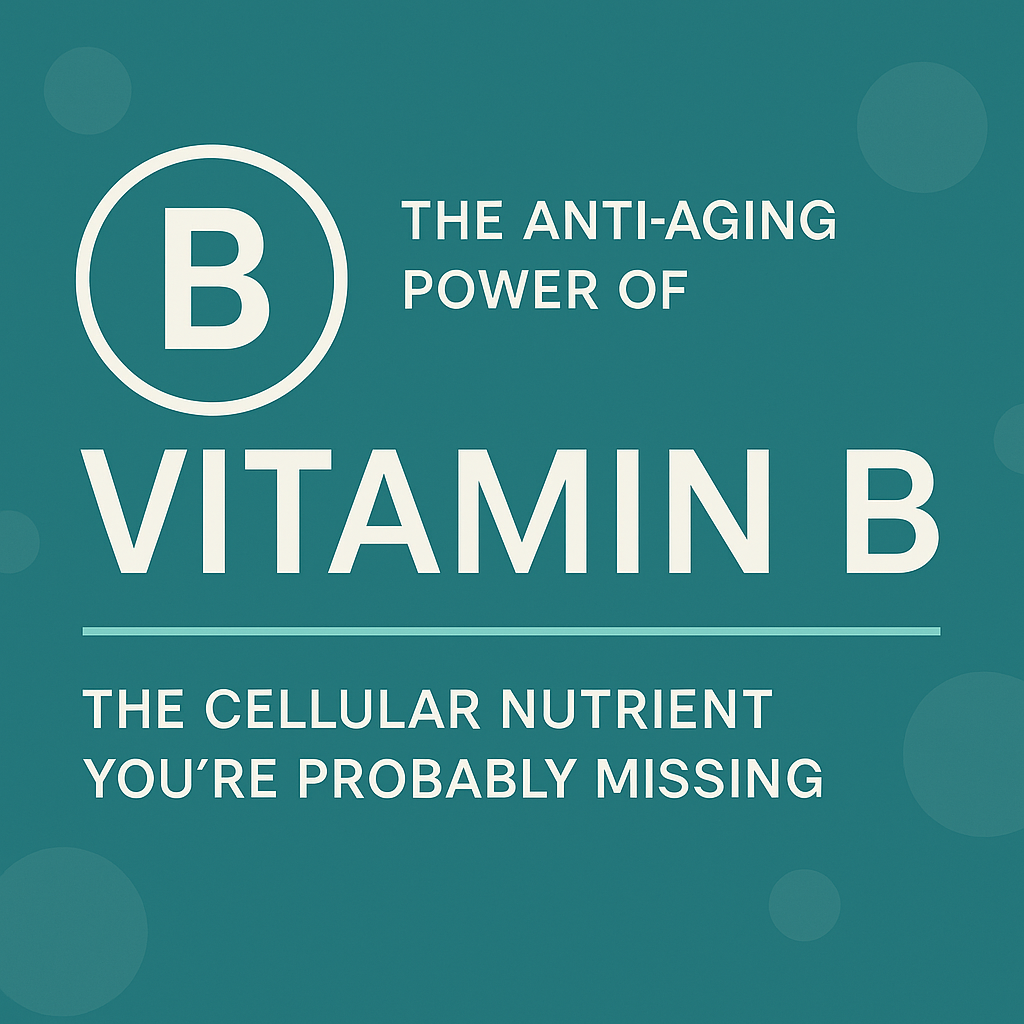
When people think about longevity supplements, they often jump to NMN or resveratrol — but one of the most essential, overlooked nutrients for healthy aging is hiding in your breakfast: the B-vitamins.
These eight vitamins don’t just keep your energy up; they regulate DNA repair, brain health, and metabolic efficiency — the foundation of how your body ages.
⚙️ What Are B-Vitamins and Why They Matter for Aging
The B-vitamin complex includes B1 (thiamine), B2 (riboflavin), B3 (niacin), B5 (pantothenic acid), B6 (pyridoxine), B7 (biotin), B9 (folate), and B12 (cobalamin).
Together, they act as cofactors for hundreds of cellular reactions — the processes that create energy, repair DNA, and remove damaged molecules. As we age, these processes slow down, and our need for micronutrient efficiency increases.
Low levels of key B-vitamins are directly linked to fatigue, poor cognition, mitochondrial decline, and increased inflammation — all markers of accelerated aging.
🔋 B-Vitamins and Cellular Energy
B-vitamins are central to mitochondrial metabolism — how your cells convert food into ATP (the molecule of life).
- B1, B2, B3, and B5 support the Krebs cycle, your body’s core energy-production pathway.
- B12 and folate (B9) help build red blood cells that transport oxygen to every organ.
Maintaining optimal B-vitamin levels means less fatigue, better muscle recovery, and more youthful energy output.
🧠 Brain Health, Mood, and Cognitive Longevity
Aging brains are vulnerable to oxidative stress and reduced neurochemical activity.
- B6, B9, and B12 regulate homocysteine — an amino acid that, when elevated, accelerates cognitive decline and vascular damage.
- These same vitamins are also involved in the production of serotonin, dopamine, and GABA, neurotransmitters that affect mood and focus.
Studies show that maintaining healthy B-vitamin levels can preserve brain volume and slow cognitive aging, especially in older adults.
🧬 DNA Repair and Methylation
DNA damage and improper methylation are two hallmarks of aging.
- Folate (B9) and B12 play critical roles in the methylation cycle, which helps regulate gene expression and DNA repair.
- Niacin (B3) supports NAD⁺ production — a molecule vital for sirtuin activity, the same pathway activated by fasting and exercise.
In short: the right B-vitamins help your cells repair themselves more efficiently, protecting against age-related dysfunction.
❤️ Metabolic and Cardiovascular Protection
Vitamin B3 (niacin) has been used for decades to improve cholesterol profiles.
Other B-vitamins support balanced blood sugar, blood pressure, and vascular elasticity — key to longevity and cardiovascular health.
🥗 How to Get More B-Vitamins
Food sources:
- Leafy greens, eggs, salmon, liver, nutritional yeast, legumes, and whole grains.
- For B12, animal-based foods or fortified products are essential.
Supplementation:
- Look for a methylated B-complex (contains methyl-B12 and methyl-folate for better absorption).
- Choose formulas with third-party testing and bioactive forms like P5P (B6) and R-5-P (B2).
Brands such as Thorne, Pure Encapsulations, or Seeking Health offer high-quality options aligned with the AgeNovaHealth standard for purity and efficacy.
🌿 The AgeNovaHealth Takeaway
Vitamin B may not be trendy, but it’s one of the most essential nutrient families for long-term healthspan.
From brain and energy support to DNA stability, these small molecules play an outsized role in keeping you youthful at the cellular level.
Optimize your biology — not with hype, but with fundamentals.
This is the quiet science of aging well.




Leave a Reply